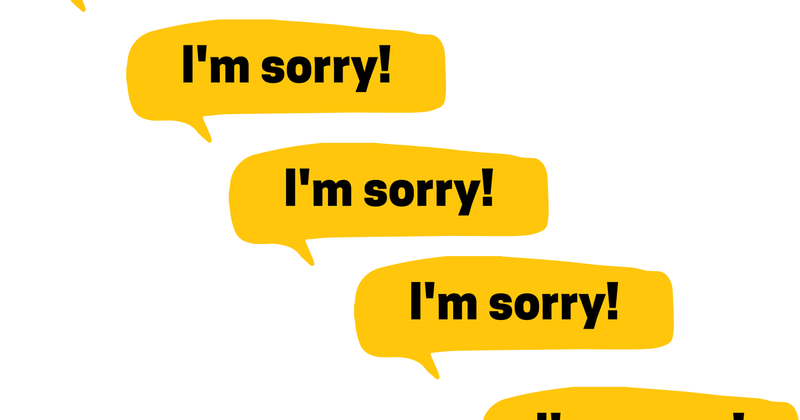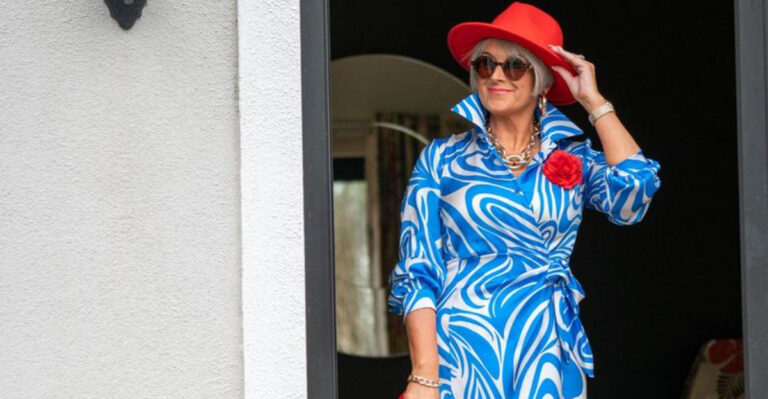16 Subtle Actions That Reveal A Lot About A Person’s Personality
You ever catch yourself noticing tiny details about someone and thinking, “Wow, that says a lot?” I do. Sometimes, it’s not the big declarations or the public snapshots that show you who someone is—it’s the little, blink-and-you’ll-miss-it moments.
The way they pour coffee, the way they handle a delay, or even how they sign off an email. I wish someone had told me sooner to pay attention to the stuff no one thinks matters—because most of the time, that’s where the real story is hiding.
So, if you’ve ever wondered what to look for (and what you might be showing yourself), read on. Here are sixteen subtle actions that speak louder than words about who we are—and maybe, who we could become.
1. Greeting Style

Ever notice the difference between a quick head nod and a full-on, light-up-the-room grin? The way someone greets you can offer up more about their personality than any icebreaker ever could. Some people default to a polite handshake, while others go for a hug, and a few barely look up from their phones.
If you watch closely, those first few seconds tell you how open—or closed off—someone is willing to be. I had a neighbor who always managed a cheerful “Hey! How’s your day?” no matter the weather or her mood. It made every interaction feel, well, human.
Compare that to the types who mumble or keep their distance; maybe it’s nerves, maybe it’s habit, but either way, it sets the tone. Sometimes those little hellos are the clearest hint at someone’s warmth or walls. When you meet someone new, pay attention. It’s not just about being polite—it’s about being seen.
2. Walking Pace and Posture

You can learn a lot just by watching how someone walks. You know those fast walkers? I always wondered if they were rushing toward something or running from something, but either way, you see confidence or anxiety in every step.
Slow walkers, on the other hand, seem like they’re lost in their own world. Maybe it’s carefulness; maybe it’s exhaustion.
Posture gives away the rest. Shoulders back says brave or bold, while slouched shoulders hint at the weight they carry. Next time you walk beside someone, notice the rhythm. It’s a silent story we tell, without meaning to.
3. Eating Habits

My husband inhales his food like he’s in a timed contest—every meal is an event. Eating habits don’t lie. They reflect how someone moves through life: fast, slow, cautious, or wild.
If you watch long enough, you see the patterns. The picky eaters, the adventurous ones who’ll try anything, the ones who savor and the ones who simply refuel. At family dinners, I’d see who lingered at the table, soaking in conversation, and who cleared their plate before anyone else had started.
It’s not just food on a fork; it’s comfort, risk, routine, or rebellion. What you notice at mealtime might be exactly how someone handles life’s menu: all in, just enough, or not quite sure. At shared meals, look past what’s served.
4. Email Communication Style

I still smile thinking of the friend whose emails read like voice notes—full of inside jokes, typos, and random emojis. Meanwhile, my old boss sent messages so polished you’d think she ran them through a legal team. How we write emails is a weirdly honest mirror.
Some people skip the greetings and sign-offs, sending straight-to-the-point lists. Others can’t resist adding a little personality—even in work notes, there’s an exclamation mark or a quirky sign-off. I once caught myself using way too many “I” statements and realized I was worried about being heard.
It’s not about perfect grammar; it’s about intention and tone. Your inbox is full of clues—formality, warmth, brevity, or a desperate need to connect. Another time you read an email, listen for the voice behind it. It says more than you think.
5. Treatment of Service Staff

You can’t fake kindness to someone taking your order while you’re running late. I learned more about some dates from how they treated the waiter than from anything they told me. There’s a difference between being polite and being genuinely considerate.
Ever notice who says thank you, or looks the cashier in the eye? Those small acts are loaded. They reveal empathy, or sometimes entitlement, without a word.
It’s not about tipping big. It’s about how someone shows up for people who aren’t in a position to do anything for them. If you want to know who someone is, watch how they act when no one’s grading their manners.
6. Punctuality

It’s one of those things we pretend doesn’t matter—until it does. I’ve waited in parking lots and watched the minutes tick by more times then I care to admit, to be honest. Every one of them felt like a quiet verdict. There’s a certain respect in showing up when you say you will.
Sometimes it’s about chaos, not character. We all know someone who’s always late, but when you dig deeper, it’s often about their relationship with time—or with the people waiting. Being early isn’t always about anxiety; at times, it’s about wanting to be counted on.
Being on time isn’t just about schedules. It’s about whether someone values your time as much as their own.
7. Handwriting Style

A handwritten note on the fridge. A scribbled grocery list in the bottom of a purse. There’s something intimate about seeing someone’s handwriting up close. The perfectionists, with letters evenly spaced and straight lines, give themselves away instantly.
Then there are the doodlers, the ones who turn every margin into a tiny art show. Even a signature can reveal how someone presents themselves to the world: bold, reserved, messy, or careful.
We rarely write things by hand anymore, but when we do, it’s like leaving a fingerprint. You don’t need a graphologist to see the difference between someone who races through words and someone who lets the pen linger. It’s a window into personality, right there in ink.
8. Listening Habits

Some people listen like they’re waiting for their turn. Others really hear you.
Active listeners don’t interrupt. They ask questions that show they want to understand, not just respond. Once, during a hard week, someone remembered a tiny detail I’d mentioned days before. That kind of attention is rare.
Listening isn’t just about patience. It’s about curiosity, empathy, and the willingness to let someone else’s words hang in the air. If you want to know who values connection, notice who listens when there’s nothing in it for them.
9. Use of Names in Conversation

“Hey, Kat, you okay?” Something hits different when someone uses your name. It’s personal, like a little nudge that says, “I see you.”
Not everyone does it. Some people avoid saying names, maybe out of shyness or habit. When someone makes the effort, it shows attention and respect. It’s a subtle way to connect—especially for people who might feel invisible.
It’s not about flattery. It’s about making the conversation feel real, grounded, and specific. If someone remembers your name and uses it, chances are they’re tuned in. It matters, even if it sounds simple.
10. Handling Stress and Adversity

Chaos exposes us. I once watched a coworker stay completely calm while everything around her went sideways. No raised voice, no blaming, just quiet focus. Meanwhile, I’ve cracked under smaller pressures more times than I can count (and like to admit).
You find out what someone’s made of when things fall apart. Some snap, some shut down, some get resourceful. I learned the hard way that how we handle stress isn’t always about strength—it’s sometimes about what we’ve survived before.
If you want a real window into someone’s resilience, watch them on a bad day. It’s easy to be kind and brave when things are easy. The real test shows up during the storm.
11. Eye Contact

Have you ever met someone who could look you dead in the eye—and you just knew you could trust them? Or maybe you’ve talked to someone who looks everywhere but your face. Eye contact is loaded with meaning, and not always what you’d expect.
Some people stare too intently, trying to prove something. Others look away out of shyness or because they’re carrying something heavy. I remember feeling seen—really seen—for the first time by someone who just held my gaze for one extra beat.
It’s not about staring, it’s about connection. The right kind of eye contact isn’t confrontational; it’s an invitation. It says, “I’m here, with you.” On occasion, that’s all we really need.
12. Apologizing (or Not)

Some folks would rather eat nails than admit they messed up. Others apologize so quickly it almost feels cheap. There’s a sweet spot—where someone admits fault without shrinking away, and you can feel the relief in the air.
I once hurt a friend’s feelings without meaning to. She called me out, and I felt that stubborn part of myself wanting to fight back. But saying, “I was wrong, I’m sorry,” changed everything. It’s harder than it sounds, trust me.
How someone apologizes (or doesn’t) reveals their relationship with pride, vulnerability, and repair. A real apology is rare, but you always remember it when it comes. It’s its own kind of honesty.
13. Borrowing and Returning Things

That sinking feeling when your favorite sweater disappears after a sleepover. Or the relief when a friend returns a borrowed book, sticky note still inside. How someone handles borrowed things is a tiny, telling thing.
Some people forget, some never ask, and some make a point to return things in better shape than they found them. One friend even slipped a thank you note into my borrowed casserole dish. It’s not about the stuff; it’s about respect.
Pay attention to who treats your things (and your boundaries) with care. It’s a small way of saying, “I honor what matters to you.” Or not. Either way, it speaks volumes.
14. Reacting to Others’ Success

True story: I once bombed a test, and my friend aced it. She tried to hide her joy, worried I’d be upset. That moment taught me that how we react to others’ wins says more about us than our own victories.
Some people celebrate you, genuinely. Others get weirdly quiet, or change the subject. It’s hard to be happy for someone else when you’re hurting, but it’s even harder to fake it convincingly.
Jealousy pops up, but so does generosity of spirit. Notice the people who can clap for you when you’re on stage. They’re the ones with enough self-worth to want good things for others. That’s not nothing.
15. Phone Etiquette in Company

You know those moments when you share a story, only to realize your friend is scrolling through Instagram under the table? This is basically modern manners. Some folks can’t help but check notifications every few minutes, and others put their phones away like they’re locking up temptation.
Try to turn your phone off and say, “You’ve got my attention.” It feels like a luxury, believe me. We all want to feel prioritized, even if it’s just for an hour over takeout.
This tells you about their focus, values, and, honestly, how much you matter to them. Once in a while, presence is the best gift.
16. Sense of Humor Under Awkwardness

The person who jokes about tripping over their own feet instead of pretending it didn’t happen? That’s gold. Humor during awkward moments is a sign of flexibility and confidence.
Not everyone can do it—some freeze, some blush, some crack a self-deprecating line and move on. It always feels like a little relief when someone laughs at themselves.
If you can find the funny in your own missteps, you’re probably comfortable in your skin. It’s not just about being witty—it’s about being willing to let things be imperfect.







